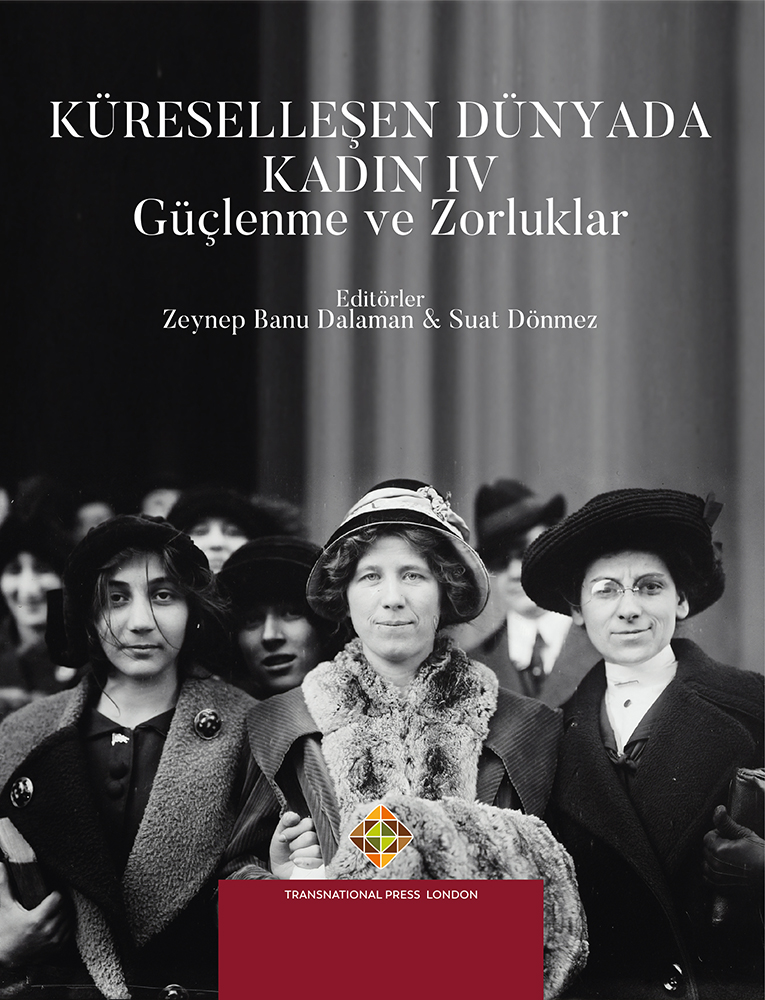Kadının Yoksullaşması: Sağlık Hakkı Bağlamında Hijyen Ürünlerine Erişim
Feminisation of Poverty: Access to Hygiene Products in The Context of The Right to Health
Author(s): Elif Demirbaş, Meryem Erol, Aleyna Yıldırım
Subject(s): Politics / Political Sciences, Social Sciences, Psychology, Essay|Book Review |Scientific Life, General Reference Works, Geography, Regional studies, Library and Information Science, Sociology
Published by: Transnational Press London
Keywords: The right to health; feminisation of poverty; access to hygiene; Sağlık hakkı; kadın yoksulluğu; hijyen ürünlerine erişim; The right to health; feminisation of poverty; access to hygiene products
Summary/Abstract: The aim of this study is to evaluate that women’s access to hygiene products within the scope of the right to health, in line with the titles of “no poverty”, “gender equality”, “good health and well-being”, “clean water and sanitation”, “reduced inequality”, which are among the United Nations Sustainable Development Goals. Poverty is the state of being deprived of economic, social, and cultural rights as well as being unable to have adequate living conditions. While this situation reduces quality of life, on the other hand, it threatens the right to life. In order to use the right to life, individuals must have a biopsychosocial well-being. While poverty enables access to the right to health, the state of illness also causes poverty. The right to health is under constitutional guarantee as a feature of being a social state. However, the accessibility of this right to all individuals in society is limited by “adequacy of financial resources” in the constitution. So, there is injustice in accessing the right to health. In this respect, the responsibility of coping with economic crises depends on personal effort. Due to gender inequality, women are not well represented in education, employment, and politics. This situation limits women’s access to constitutional rights by making their needs invisible. The impoverishment of these women, whose access to rights is restricted, deepens their already disadvantaged position. Changes in the social structure cause poverty to be experienced differently by men and women. They also change the social status of women, bringing the concept of feminisation of poverty to the agenda. When women’s poverty is evaluated with the awareness that women have special needs, access to protective, preventive, curative, and rehabilitation services and the rights such as maternity leave, breastfeeding leave, menstrual leave, and abortion should be provided. Also, it should be ensured that products such as intimate cleaning products, sanitary pads, tampons, washable and reusable pads, and menstrual cups are accessible. Disadvantaged women experience problems in accessing health services and hygiene products. This causes some diseases. The inability to access appropriate treatment and services due to poverty also causes these diseases to become chronic. Women’s poverty, which has increased in parallel with the decrease in purchasing power in recent years, and the problems experienced in the pricing policy of hygiene products have brought women’s adequate and appropriate access to menstrual products back on the agenda. In addition, sustainable development goals, which have been on the agenda since 2015, also encourage the end of poverty, reducing inequalities and providing access to products and services. Within the scope of the right to health, policies should be developed by considering menstrual equality in facilitating women’s access to hygiene products. Considering the increasing poverty of women, practices should be developed to enable disadvantaged women to access these products. In addition, alternative products that can reduce the consumption of disposable menstrual hygiene products should be expanded. Also, these products should be accessible to every woman.
Book: Küreselleşen Dünyada Kadın – IV: Güçlenme ve Zorluklar
- Page Range: 41-52
- Page Count: 12
- Publication Year: 2023
- Language: Turkish
- Content File-PDF

